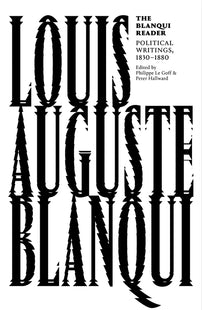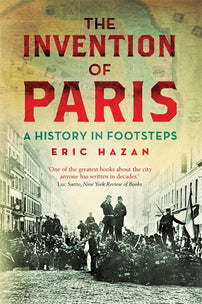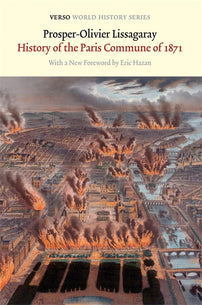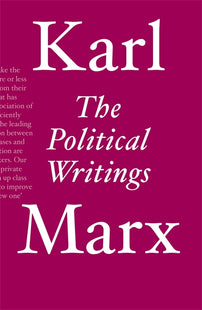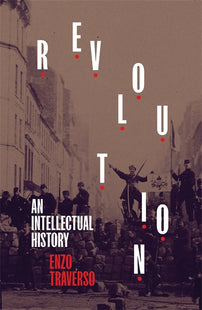Blanqui today?
What is the significance of Auguste Blanqui for contemporary politics? In what ways might his political theory inform or serve as a corrective to recent debates about collective political action and radical social change? Here, Philippe Le Goff argues that Blanqui can help us formulate some of our most basic assumptions and questions today.
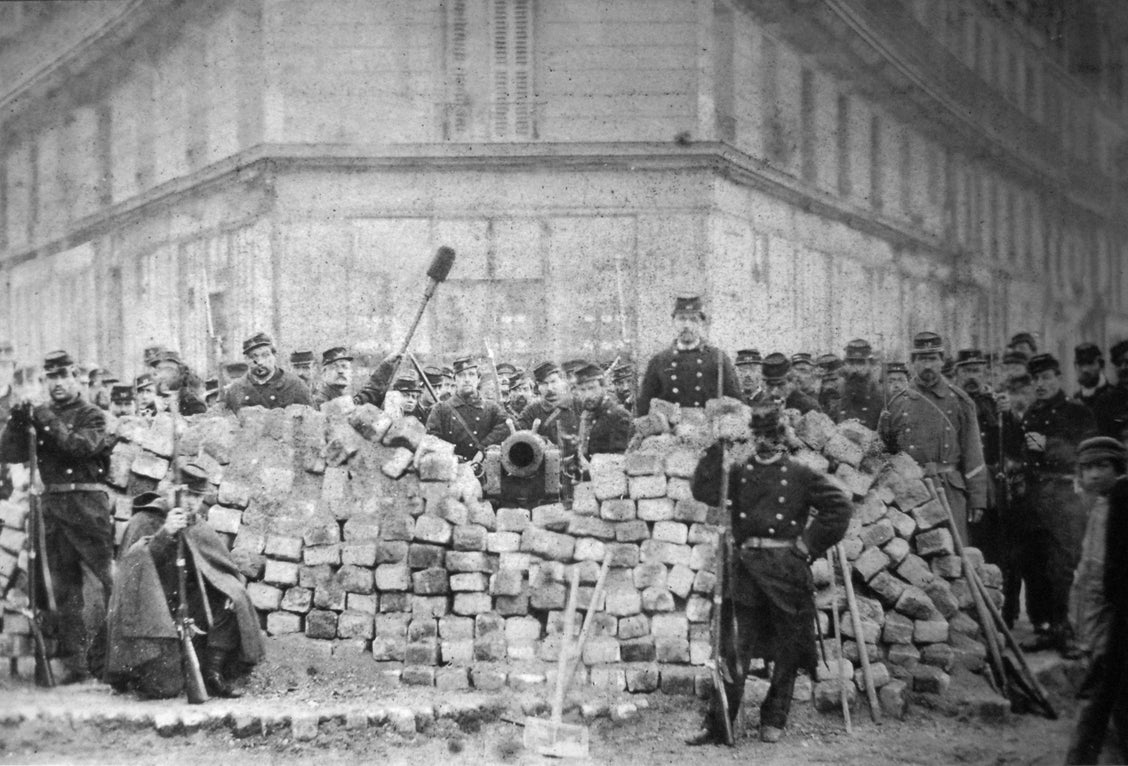
Across the declarations and articles, pamphlets and polemics, personal notes and correspondence that comprise the body of work of the great nineteenth-century revolutionary Auguste Blanqui, his fundamental aim was always, as Gramsci wrote of Machiavelli, to 'bring everything back to politics'. Of course, politics here is not a matter of constitutional details or government policies, but of founding new social orders on the basis of a radical redistribution of wealth and power. For Blanqui, everything turns on one basic issue: the empowerment of the powerless. What forms of collective knowledge and action, Blanqui asks, are necessary for the oppressed to overcome their oppression and to realise their freedom and happiness? How, in other words, can the people become capable of ruling themselves?
Any attempt to draw direct parallels and equivalences between Blanqui's time and our own will soon run into trouble, of course. The largely pre-industrial social relations of nineteenth-century France, a country that was still dominated by agriculture, small-scale commerce and artisanal production, to say nothing of the means of distribution and exchange, both nationally and internationally, are far removed from those of twenty-first-century global capitalism. And yet, for all the obvious contextual differences, one cannot fail to be struck by the extent to which, in certain basic respects, Blanqui's socio-political analysis does in fact resonate today. His depiction, from 1832, of a financial oligarchy, of a corrupted democracy and a so-called 'representative system' that 'concentrates the [legislative, judicial and executive] powers in the hands of a small number of privileged people who are united by the same interests', of an ever-widening gap between rich and poor and of ever more intensive forms of exploitation, could easily be written today – and the persistence of highly stratified social arrangements based on the concentration of wealth and power was something that Blanqui was keenly aware of. As he states, in a brutally reductive gesture: 'Aristocracy: the flowers. The people: the manure that allows them to grow – this has been the structure of societies for centuries.' Similarly, it is not hard to see how his description of the ruling ideology of his age might seem somewhat familiar to contemporary readers. 'Equality is a chimera, and devotion foolishness', he writes. 'Let each man be devoted to himself and he will not need the devotion of others. Our only duty in this world is to enrich ourselves. The strongest and most cunning have free rein. Those who dream of universal happiness are either madmen or fanatics.' While the economic conditions and political forms today are immensely different from those of Blanqui's time, the social forces and interests that underpin them remain fundamentally the same.
What, we might then ask, is the significance of Blanqui for contemporary politics? In what ways might his political theory inform or serve as a corrective to contemporary debates about the politics of popular empowerment? If Blanqui’s writings can provide an inspiration for the present, it will not be a matter of mere anachronistic repetition or unqualified affirmation of his politics, but of locating and extracting some principles or questions that may be effectively reaffirmed or reposed today.
[book-strip index="1" style="display"]Temporality
Blanqui's voluntarist rejection of historical or economic laws, of purportedly objective forces or processes pre-determining humanity's social arrangements, has been consistently rejected as Blanqui's voluntarist ignorance. 'Posterity', notes Jacques Rancière, 'has preferred to retain the reassuring image of an unrepentant conspirator who was regrettably ignorant of the laws of history.' But it is precisely this open and contingent view of human history, its privileging of political possibility over historical necessity and its opposition to any form of fatalist teleology, that would mark some of Blanqui's most notable readers, from Walter Benjamin to Daniel Bensaïd, who in the nineteenth-century revolutionary discovered paths out of the blind alleys into which twentieth-century revolutionary politics had been led.
The twenty-first century confronts these issues of the temporalities of political struggle with no less importance or urgency. Today, 'in our bleak age' – as Rancière suggestively describes it – 'so adoring of every form of necessity', in the ruins of 'scientific socialism' and any pretentions to have discovered the internal and immutable logic of history, Blanqui's anti-determinism and anti-positivism re-emerge with timely forcefulness. History in this sense is not something that happens to us, a process that we must passively submit to and endure. We can, we must, actively shape it ourselves. Blanqui knows that, within the radical contingency of human history, only the organised political action of today can advance the cause of equality and justice tomorrow. 'Revolutions do not happen by themselves', he maintained in 1860; 'they are the work of men'[1]. History will not bring deliverance. We cannot rely on the emancipatory potential of economic tendencies or technological developments. 'Our salvation depends solely on ourselves, and one must expect it only to come from ourselves.' Collective political action, itself based on more basic assumptions regarding humans' capacity to rule themselves and to determine their own socio-economic arrangements, alone offers the possibility of radical social change. Blanqui's outlook, here as elsewhere, is not coloured by his own political experience. Despite nearly a decade of imperial rule, during which time the revolutionary party had disintegrated and popular resignation to the status quo had come to reign, he still stood by such a possibility. 'As long as we pursue this work in the future, as we have done for these past eight years, history will change course, in spite of whatever all the oracles of human fatalism might claim.' There is no such thing as historical fate or inevitable future destiny. There are only the political choices and commitments of the present.
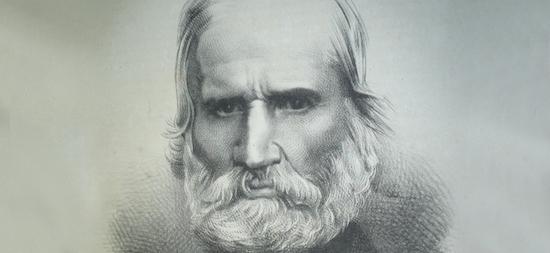
This is the message that lies at the heart of Blanqui's writings. If it is sanguine, it is not unrealistically so. For Blanqui has no illusions regarding the efforts required to realise this possibility. Collective emancipation is 'work', he makes clear; it is a project or task requiring great effort, perseverance, patience and discipline on the part of all those who undertake it in order to overcome all the difficulties and obstacles it will inevitably encounter. And history shows that such efforts are in no way beyond us, such possibilities always realizable, however remote they might at times appear.
Agency
Crucial to these assumptions about the temporality of collective action, then, is the exercise of this action itself. Most of the principal elements of Blanqui's account of militant political agency can be traced back to his early political engagements. The July Revolution of 1830 showed that only an insurgent popular actor is capable of overthrowing the established order of things. Such an actor must have a clear, common goal, a coherent strategy to realise it and the firm resolve to achieve it. For a dominant group will not grant freedom to a subordinate group – freedom from domination and exploitation will have to be forcibly won. Understood in these terms, there are perhaps few more lucid expositions of some of the practical steps necessary to initiate and then to continue a process of popular self-determination.
There is, of course, no escaping the fact that all the major political sequences in which Blanqui participated, to say nothing of his own various political endeavours, resulted in failure. Simply put, the general tenor of his entire political experience is defeat. But, as Perry Anderson reminds us, 'to be defeated and to be bowed are not the same.' Political militancy is as much a matter of encouraging and sustaining a process of popular empowerment as it is responding to a situation of generalised disempowerment. Across the nineteenth century each successive round of defeat and disappointment – 1830-34, 1839, 1848-52, 1870-71 – brought questions of commitment and renewal to the fore. In the 1870s, as in the 1850s and the 1830s, Blanqui's political experience repeatedly returned him to a related set of questions: How do you sustain a revolutionary project and commitment to principles of justice and equality in the face widespread political resignation and exhaustion, in a profoundly counter-revolutionary moment, a moment when, seemingly, 'there is no alternative' to the established order of things? How do you respond to the dispersal and disempowerment of previously organised and combative collective actor?
[book-strip index="2" style="display"]Few of Blanqui's contemporaries rival the force and consistency of his own sense of conviction and purpose. In his life and work alike he shows that an informed, principled decision then requires principled, unwavering commitment; a politics of voluntary choice is meaningless without accepting the consequences – however difficult, however demanding – the initial choice will necessarily impose. But beyond the power of his own example, here Blanqui no doubt often offers more in the way of questions themselves than answers. And yet it is precisely only through posing anew these and similar questions – what is the importance of clearly stated principles and goals? How might notions of dedication and resolve inform the approach to difficulties and defeats, obstacles and impasses, as they necessarily appear in the course of a political sequence, be it local or general, short or long? How is a sense of political confidence and enthusiasm created, harnessed and sustained, both individually and collectively? How is it stifled, repressed and extinguished? – that it might be possible to arrive at some answers.
Strategy
So far we have gone from the insistence on the possibility of social change to the political militancy that is necessary to realise, or simply to affirm, that possibility. The question of how that resolute militancy might be effectively channelled and directed forms of the basis of this third point.
Blanqui was one of the first socialist thinkers to reflect seriously on the question of political strategy. His strategic concerns derive from the recognition of a decisive factor confronting all movements for social change: political power. One of Blanqui's most significant and consistent insights is the understanding that without political power any attempt to enact far-reaching and lasting social change will bear no fruit. Power is certainly not the end in itself. But forms of collective action, no matter how inspiring, that downplay or ignore the problem of political power, of the means by which it might be collectively taken, retained and exercised, will be repeatedly contained and subsumed by the status quo, leaving little trace beyond a momentary rupture. History shows, as Blanqui again learned in the wake of July 1830, that the realisation of radical social change requires collective political action that extends beyond local, ephemeral disruption. Localised mobilisations, mass demonstrations and protests, strikes and occupations, must be concentrated and translated into political forms capable of constituting and exercising popular power. How, then, can localised practices be generalised? How do a people go from exclusion from to constitution of political power as the basis of enduring social change? How should we negotiate the apparent tension between popular empowerment and the concrete exercise of political power?
Questions of strategy lead to questions – and problems – of organisation. To maintain, after Blanqui, that 'organisation means victory; dispersal means death' is not to claim that a mere return to and repetition of past organisational forms would provide an answer. But it is to affirm that forms of organisation remain necessary. Blanqui is right to insist that without responsive leadership and collective discipline an oppressed group will remain incapable of ultimately transcending their oppression. He recognises that there are no successful popular mobilisations without effective political organisation. He correctly diagnoses this basic problem, even if his own remedies are, needless to say, far from satisfactory. The solutions remain ours to discover.
Philippe Le Goff is an assistant professor at the University of Warwick, UK. He is the co-editor of The Blanqui Reader (Verso, 2018).
This essay is an edited extract from Philippe Le Goff, Auguste Blanqui and the Politics of Popular Empowerment (Bloomsbury, 2020), which is now available in paperback. Reprinted with permission.
[1] Here as above, for the sake of historical accuracy my translation retains the gendered language that is typical of Blanqui's formulations

